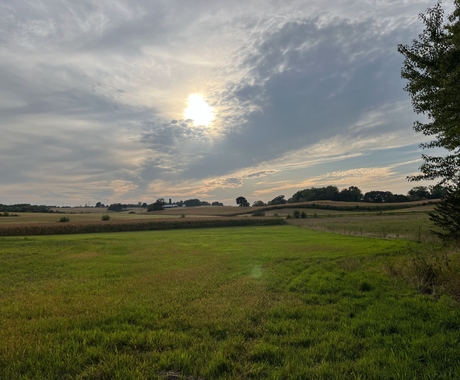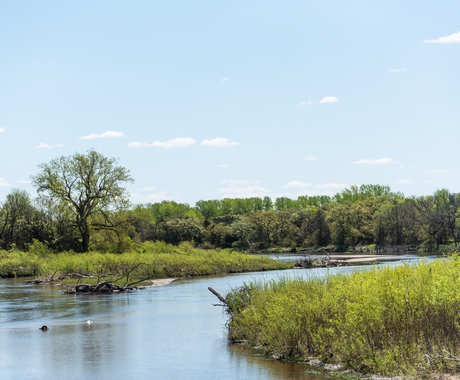Rhea Landholm, brand marketing and communications manager, rheal@cfra.org, 402.687.2100 ext 1025
NEVADA, IOWA – Iowa farmers identified potential regulation as a top concern when considering water quality practices, according to a Center for Rural Affairs report released today.
“Catching Waves: Farmers Gauge Risk to Advance Water Quality In Iowa,” examines perceived production and social risks to adopting water quality improvement practices in Iowa.
“Water quality is a contentious issue in Iowa,” said Katie Rock, policy associate at the Center, and author of the report. “Continued high nitrogen, phosphorous, bacteria, and sediment levels in surface waters threaten public health and outdoor recreation.”
The report breaks down data from a 2017 survey by the Center for Rural Affairs that polled Iowa farmers. Responding to the survey were 52 farmers representing 41 of the state’s 90 counties.
Results show weather and shifting climatic patterns are the largest perceived threats to farmers' operations. Respondents identified agricultural consolidation, fluctuating commodity prices, and nutrient and soil loss as other top concerns.
A majority of farmers reported they do not feel social pressure to install additional conservation practices. Beyond potential regulation, those who reported feeling this pressure identified soil health, nutrient retention, and cost savings as top reasons for new practice adoption.
“As Iowa continues to expand its watershed approach to water quality, understanding the needs, risks, and barriers farmers face will be critical,” said Rock.
These findings can help guide water quality efforts by researchers, farmers, watershed organizations, and government officials. The Center for Rural Affairs is dedicated to facilitating research-based solutions that elevate rural communities and people.
For more information, and to view the report, visit cfra.org/publications.




